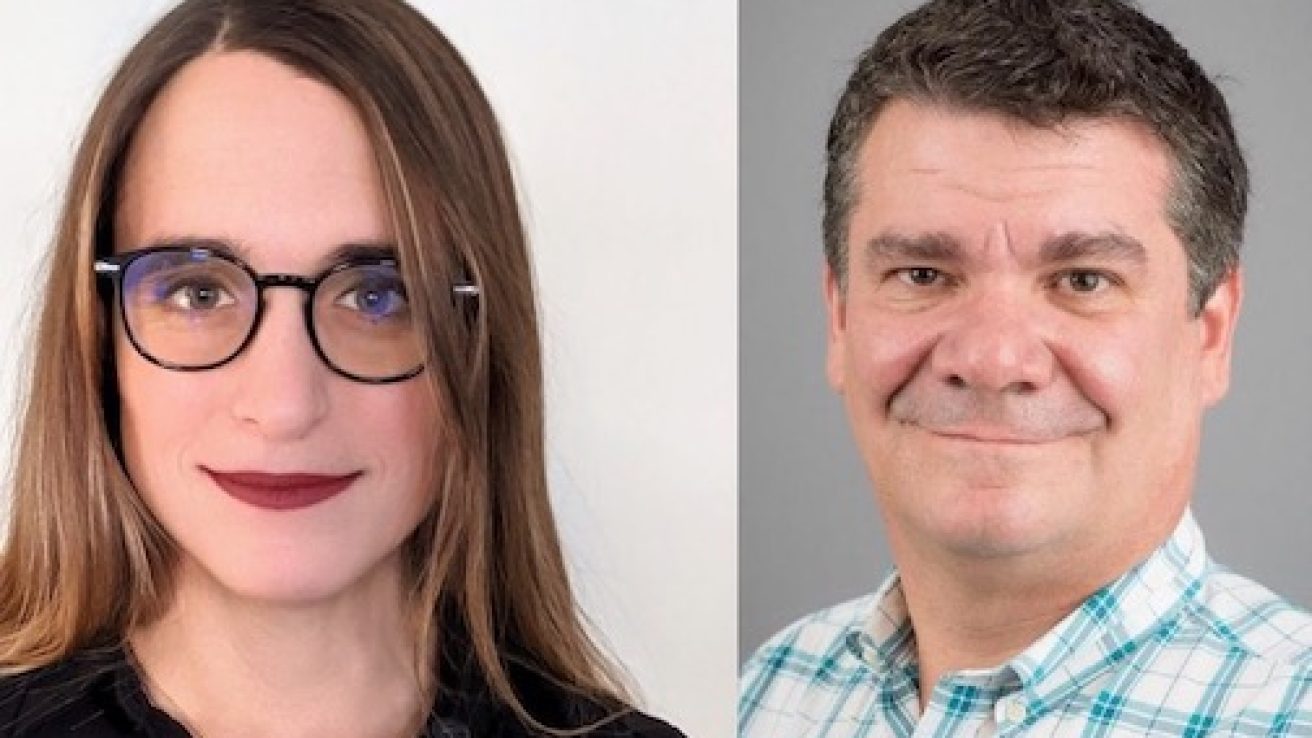In this MD Newsline exclusive interview with psychiatric nurse practitioner Dallas Ducar and pediatrician Dr. Andrew Cronyn, we discuss the health impacts of anti-LGBTQ+ legislation. We also discuss how to improve LGBTQ+ recruitment and enrollment in clinical trials.
MD Newsline:
Can you speak to the health impacts of anti-LGBTQ+ legislation?
Dallas Ducar:
“We know that the suicide attempt rate in the United States is somewhere around 54% for trans folks. And that number goes back down to the national average when you have meaningful support from family. There’s nothing inherently wrong with trans folks. It’s the societal transphobia and media messaging that cause these high suicide attempt rates among trans people.
We know that this legislation will be deleterious to trans people’s mental health. What we also know is trans people have superpowers. I, as a trans person, spent most of my life compartmentalizing into a little box that I was not a woman. And that takes an enormous amount of strength to be able to operate in the daily world and be able to compartmentalize a part of your life. It makes me a really good compartmentalizer when I need to be, and I’m very good in emergency settings.
Trans people have other superpowers too. They are resilient. They can create a chosen family when family’s not showing up. There are so many beautiful and strong parts of trans folks and the LGBTQ+ community in general. And that resilience is what I like to emphasize.
Yes, many people are negatively influenced by this anti-LGBTQ+ legislation in a really profound way, but the more we can shift the narrative in healthcare, the more we can encourage our patients—who are experiencing that transphobia— to instead feel empowered. I think that empowerment helps limit the spread of this myth that if my kid comes out as trans, they will be harassed their whole life. And that’s just not true.”
Dr. Andrew Cronyn:
“Yes, this legislation is horrible. There are parents around the country having to tell their kids, ‘no, no one is going to take away your medicine. We will figure out how to do it.’ A family in Arkansas left because of the legislation. And families in Texas and Montana are thinking about doing the same thing. I also know parents who have turned into forces of nature—because of this legislation—to protect their children.
And these are families with a certain level of privilege who never thought of themselves as someone who could have their right to medical care taken away. Just think about it if someone said, ‘tomorrow in Colorado, you won’t be able to get insulin anymore, and your doctor will go to jail if they prescribe it to you.’ What? That’s what we’re talking about here because gender-affirming therapy for kids is life-saving. Period. We’ve got tons of data on that.
Parents knew that, but this legislation internalized that fact for some of them. And the wave of support and activism that has come about as a result of this legislation, among medical providers too, is amazing. And because trans healthcare is life-saving medicine, it will continue to happen, no matter what happens in certain states.
I think trans kids and trans people have seen that support and activism, and it can give them a little hope. Like, ‘ok, I have fought and fought. Finally, someone is fighting next to me.’ ”
Dallas Ducar:
“At the end of the day, no matter where you stand on gender-affirming care, this legislation is a dystopian overreach of government to say that government gets to dictate against scientific evidence what care should look like. And I would really worry about what precedent legally this legislation sets for any other area of healthcare.”
MD Newsline:
How can we improve recruitment and enrollment of LGBTQ+ people in clinical trials?
Dallas Ducar:
“Community-based, participatory, action-oriented research is key. When you start a research project, make sure that the study community of interest is a part of the leadership of that research initiative, whatever it may be. If you’re doing research on people of color, do it with people of color. If you’re doing research on trans people, do it with trans people.
And that means deviating a bit from the traditional, scientific Western method. Instead of coming up with a hypothesis from my silo and then testing it in the external world, go to the communities and talk to people about what their priorities are. My one mindset of what needs to happen might be really different from what people in those communities need. So that’s the community-based part.
The participatory and action-oriented parts involve getting people to the table in designing the research. I did this with trans kids in Virginia. It was great. I, as one trans person, had some ideas of what research we should do. The trans kids had so many other brilliant ideas, which were far better than mine. And so, we all came to different hypotheses together. There was an action-oriented and ethical approach to our research. At the end of the day, it’s about how we create meaningful action in the communities that are giving us these data.
Lastly, we did this research responsibly, meaning we disseminated the findings in a way that is understandable to the community we’re doing research with. So it’s not going off to the New England Journal of Medicine, publishing something, and that’s it. That can be helpful, but it’s also going to the communities, and maybe there’s a multi-media presentation about what the results are. There are lots of ways that we can be innovative with the education piece of our clinical trials and get more marginalized communities involved.”
Dr. Andrew Cronyn:
“If you can get yourself onto an IRB (institutional review board) and get them to start adding community participation lines into everything that goes through the IRB for approval, it will change what you’re doing. It will give you so much better data. It will just be better science if you are working with people instead of observing them under a microscope.”
Responses have been condensed and lightly edited.










